- Home
- Quizzes
- My Quiz Activity
- Newsletters
- Sports Betting
- MY FAVORITES
- Add Sports/Teams
- SPORTS
-
NFL
- NFL Home
- Arizona Cardinals
- Atlanta Falcons
- Baltimore Ravens
- Buffalo Bills
- Carolina Panthers
- Chicago Bears
- Cincinnati Bengals
- Cleveland Browns
- Dallas Cowboys
- Denver Broncos
- Detroit Lions
- Green Bay Packers
- Houston Texans
- Indianapolis Colts
- Jacksonville Jaguars
- Kansas City Chiefs
- Las Vegas Raiders
- Los Angeles Chargers
- Los Angeles Rams
- Miami Dolphins
- Minnesota Vikings
- New England Patriots
- New Orleans Saints
- New York Jets
- New York Giants
- Philadelphia Eagles
- Pittsburgh Steelers
- San Francisco 49ers
- Seattle Seahawks
- Tampa Bay Buccaneers
- Tennessee Titans
- Washington Commanders
-
MLB
- MLB Home
- Arizona Diamondbacks
- Atlanta Braves
- Baltimore Orioles
- Boston Red Sox
- Chicago White Sox
- Chicago Cubs
- Cincinnati Reds
- Cleveland Guardians
- Colorado Rockies
- Detroit Tigers
- Houston Astros
- Kansas City Royals
- Los Angeles Angels
- Los Angeles Dodgers
- Miami Marlins
- Milwaukee Brewers
- Minnesota Twins
- New York Yankees
- New York Mets
- Oakland Athletics
- Philadelphia Phillies
- Pittsburgh Pirates
- San Diego Padres
- San Francisco Giants
- Seattle Mariners
- St. Louis Cardinals
- Tampa Bay Rays
- Texas Rangers
- Toronto Blue Jays
- Washington Nationals
-
NBA
- NBA Home
- Atlanta Hawks
- Boston Celtics
- Brooklyn Nets
- Charlotte Hornets
- Chicago Bulls
- Cleveland Cavaliers
- Dallas Mavericks
- Denver Nuggets
- Detroit Pistons
- Golden State Warriors
- Houston Rockets
- Indiana Pacers
- Los Angeles Clippers
- Los Angeles Lakers
- Memphis Grizzlies
- Miami Heat
- Milwaukee Bucks
- Minnesota Timberwolves
- New Orleans Pelicans
- New York Knicks
- Oklahoma City Thunder
- Orlando Magic
- Philadelphia 76ers
- Phoenix Suns
- Portland Trail Blazers
- Sacramento Kings
- San Antonio Spurs
- Toronto Raptors
- Utah Jazz
- Washington Wizards
-
NHL
- NHL Home
- Anaheim Ducks
- Arizona Coyotes
- Boston Bruins
- Buffalo Sabres
- Calgary Flames
- Carolina Hurricanes
- Chicago Blackhawks
- Colorado Avalanche
- Columbus Blue Jackets
- Dallas Stars
- Detroit Red Wings
- Edmonton Oilers
- Florida Panthers
- Los Angeles Kings
- Minnesota Wild
- Montreal Canadiens
- Nashville Predators
- New Jersey Devils
- New York Islanders
- New York Rangers
- Ottawa Senators
- Philadelphia Flyers
- Pittsburgh Penguins
- San Jose Sharks
- Seattle Kraken
- St. Louis Blues
- Tampa Bay Lightning
- Toronto Maple Leafs
- Vancouver Canucks
- Vegas Golden Knights
- Washington Capitals
- Winnipeg Jets
- NCAAF
- NCAAM
- Boxing
- Entertainment
- Lifestyle
- Golf
- MMA
- Soccer
- Tennis
- Wrestling
- More Sports
- RESOURCES
- My Account
- YB on Facebook
- YB on Twitter
- YB on Flipboard
- Contact Us
- Privacy Policy
- Terms of Service
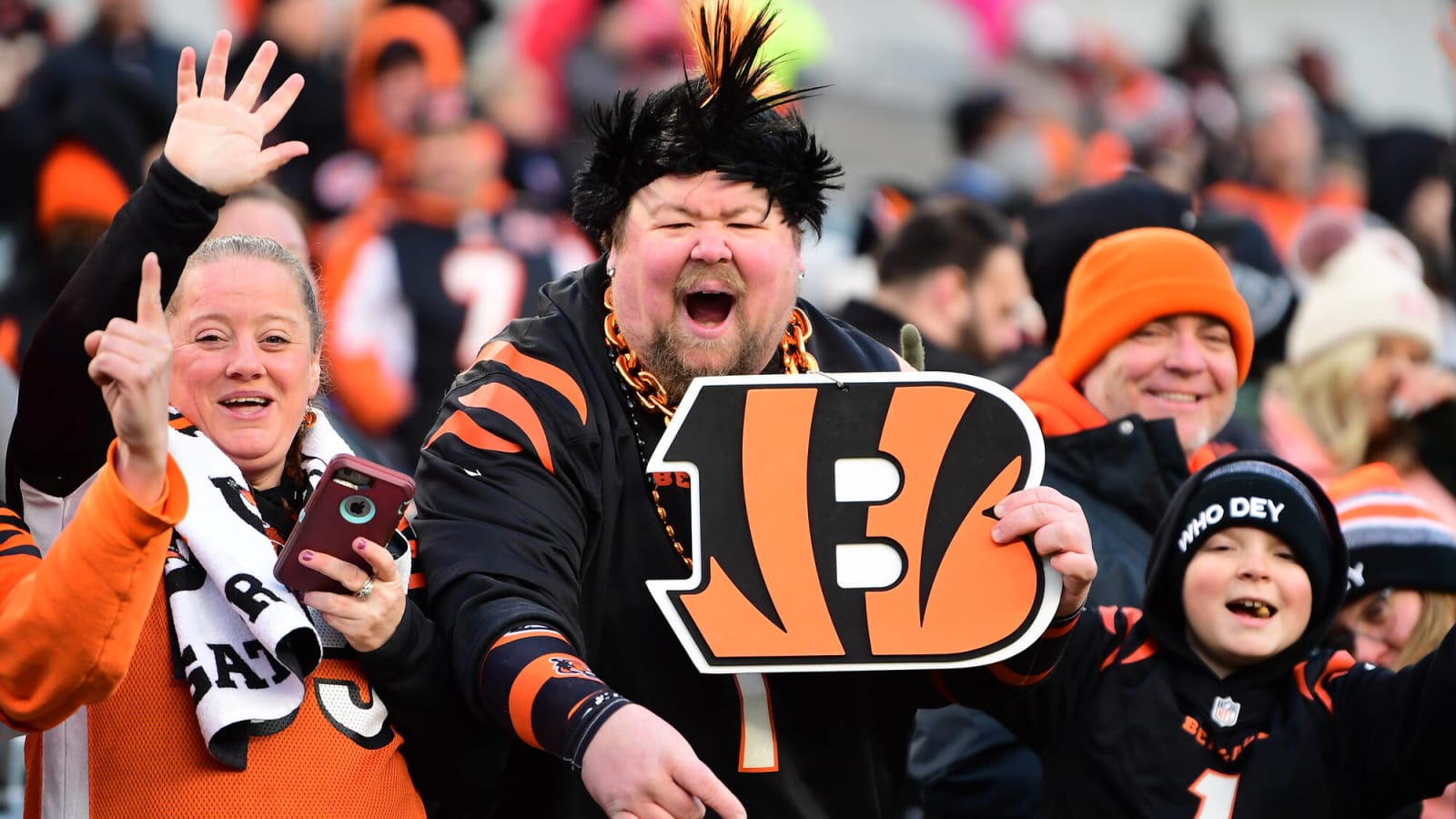
Preseason odds placed the Bengals nowhere near the Super Bowl radar. They are one of the most unexpected Super Bowl entrants in the event's 56-year history. Here are the teams that join the latest Cincinnati squad in defying summer expectations to end their season in the NFL's finale.
25. 1989 Denver Broncos
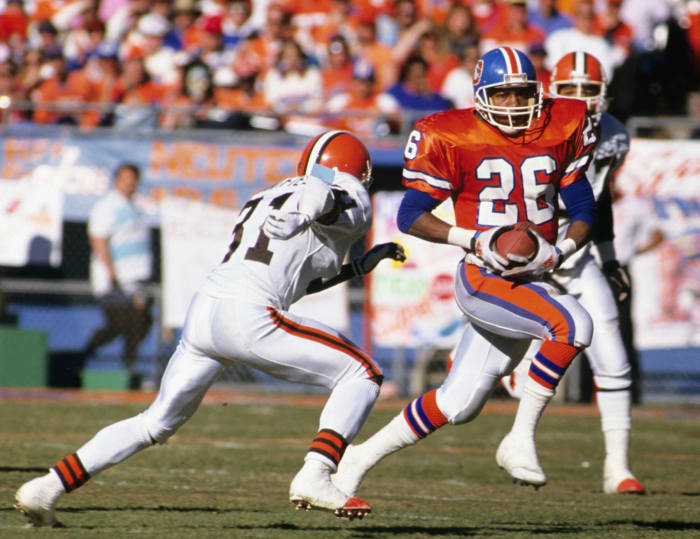
This seems strange, given the Broncos' AFC titles in 1986 and '87 and John Elway going into his age-29 season, but Denver went 8-8 in 1988. Las Vegas odds gave the Broncos the 15th-best shot at reaching Super Bowl XXIV. They imported rookie difference-makers in Bobby Humphrey and Steve Atwater, giving Elway his best running back and defense to that point. Denver ranked first defensively. The Broncos went 11-5 and were the only AFC team with double-digit wins. The disparity between the conferences was rather glaring in 1989, however, and the Broncos lost Super Bowl XXIV to perhaps the greatest team in NFL history. The 49ers' 55-10 win still stands as the Super Bowl's top blowout.
24. 2000 Baltimore Ravens

Entering the 21st century, Baltimore checked in with the eighth-best odds in the AFC to make Super Bowl XXXV. The Ravens (plus-2200) had never made the playoffs and were coming off an 8-8 season in 1999, when they employed ex-Rams starter, Tony Banks, as their primary QB. The guts of Baltimore's menacing defense existed in '99, but the team ranked 14th in scoring offense. Interestingly, the 2000 Ravens also ranked 14th in scoring. Trent Dilfer's limitations, after taking over for Banks, did not matter much. The Ray Lewis-led defense allowed 10.3 points per game -- the best mark in the 16-game era -- and was not seriously threatened in the playoffs en route to a Super Bowl romp.
23. 1999 Tennessee Titans

Not doubted like their Super Bowl XXXIV opponents were, the 1999 Titans were still off the Super Bowl radar as they transitioned to worse uniforms. The Oilers' final three seasons produced 8-8 records, with Jeff Fisher showing his early penchant for .500 or near-.500 results. At plus-3000, the Titans carried the AFC's sixth-best odds. Beyond Jevon Kearse's rookie sack record (14.5), this was not a statistically impressive team. The 13-3 squad benefited from two games against the expansion Browns, but the Titans toppled the Rams in the regular season and were the only team to beat the top-seeded Jaguars. Mike Jones' tackle stopped this surprise run one yard short of overtime in Atlanta.
22. 2007 New York Giants
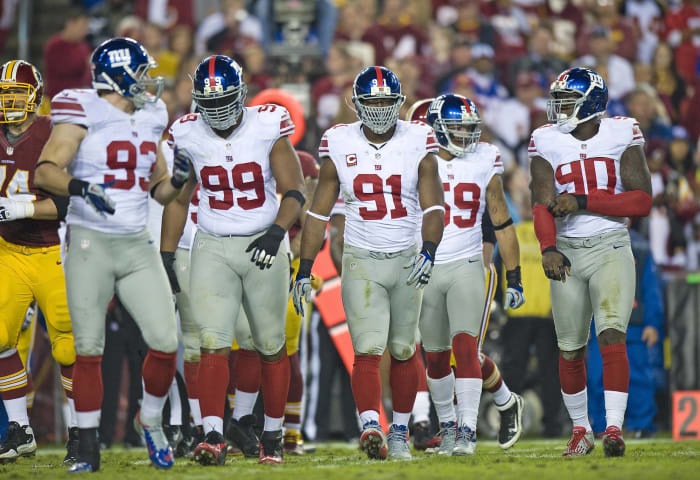
Slotted eighth in their conference coming into the 2007 season, at plus-3000, the Giants were coming off a playoff berth. But the 2006 season brought drama. Tom Coughlin's hard-edged style clashed with players and moved him toward the hot seat. Tiki Barber's retirement also stripped New York of its top weapon. The '07 Giants started 0-2 but won six straight, seeing Brandon Jacobs lead a solid backfield and their deep D-line nucleus offer its best work yet. After nearly ruining the Patriots' perfect season in Week 17, the Giants became the second road wild-card team to win a Super Bowl. Eli Manning's ascent crested at the perfect time to KO the 18-0 Pats.
21. 2005 Seattle Seahawks
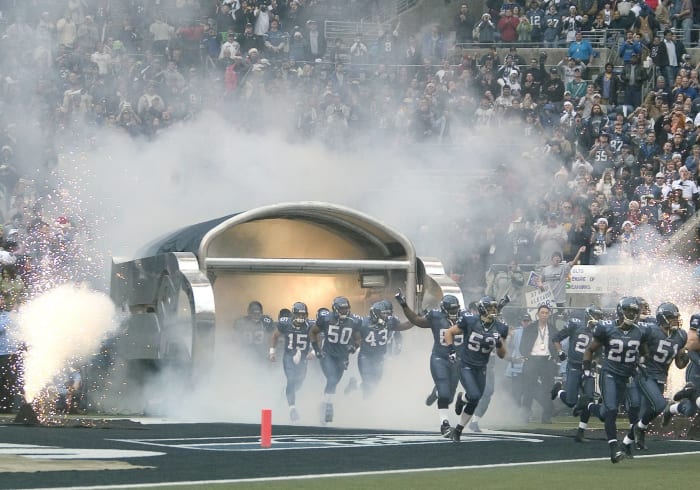
Although the Seahawks bounced back from "We want the ball, and we're gonna score" with a 9-7 2004 season, they still came into the '05 campaign as a doubted team in a bad division. With the NFC West at its nadir, the Seahawks were projected to win a division but still checked in with the conference's seventh-best odds (plus-4000) to reach Super Bowl XL. Thankfully, Seattle rostered a stacked O-line fronted by Hall of Famers Walter Jones and Steve Hutchinson, who led Shaun Alexander to a then-record 28 TDs and MVP honors. The Seahawks had little trouble with Washington and Carolina in the NFC playoffs but could not topple Pittsburgh (and the refs?) in their first Super Bowl try.
20. 1977 Denver Broncos

Heavyweight boxing and AFC football peaked in the 1970s. The Broncos were nowhere near a title shot, being 0-for-17 in postseason qualification in their history. A 9-5 1976 record and the offseason acquisition of Craig Morton installed the Broncos as a plus-2500 bet to advance to Super Bowl XII. Superpowers like the Steelers and defending champion Raiders loomed, but the Broncos -- bolstered by improved QB play and their Orange Crush defense -- went 12-2 and beat both AFC kingpins in the playoffs to secure a surprise Super Bowl date. Their eight-turnover day in New Orleans allowed the Cowboys to stroll to their second championship.
19. 2017 Philadelphia Eagles
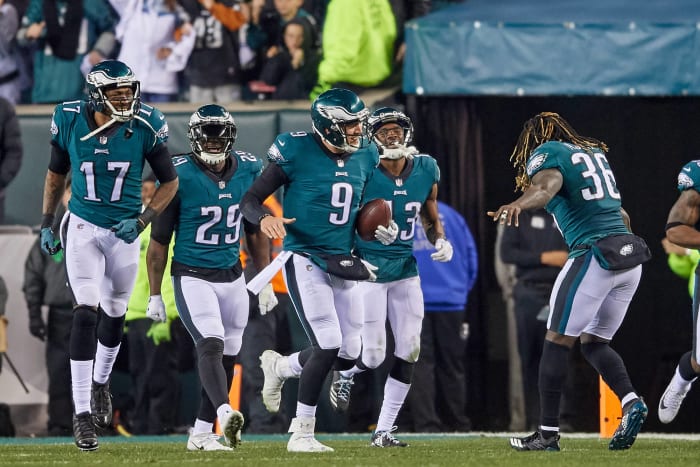
After a 7-9 2016 season, the Eagles entered the '17 slate as the ninth-most likely NFC team to qualify for Super Bowl LII. At plus-4000, Philly was viewed as a middle-of-the-road team. The team's ensuing climb was a win for DVOA, which placed the '16 Eagles fourth. Carson Wentz's best season propelled Philly into position for the No. 1 seed, and talent on the offensive and defensive lines fortified the Eagles while Nick Foles attempted to fill Wentz's shoes after the starter's December ACL tear. Vegas still made the No. 1-seeded Eagles playoff underdogs to the Falcons, Vikings, and Patriots. The team built around Wentz's rookie deal surprised most by upending each.
18. 1980 Oakland Raiders

The Raiders missed the playoffs in John Madden's final season and fell short in Tom Flores' 1979 debut, leading to a suspicion Oakland's run was ending. The team traded Ken Stabler for Oilers starter Dan Pastorini straight up that offseason, and oddsmakers gave the Raiders (plus-3500) the eighth-best shot to come out of the AFC. A Pastorini injury gave former top prospect Jim Plunkett a chance. Oakland still had Canton-bound O-linemen Gene Upshaw and Art Shell, and Lester Hayes intercepted a ridiculous 18 passes (regular and postseason) to help the Raiders upset the Browns and Chargers. Rod Martin picked off three more in a one-sided Super Bowl XV win over the Eagles.
17. 1985 New England Patriots
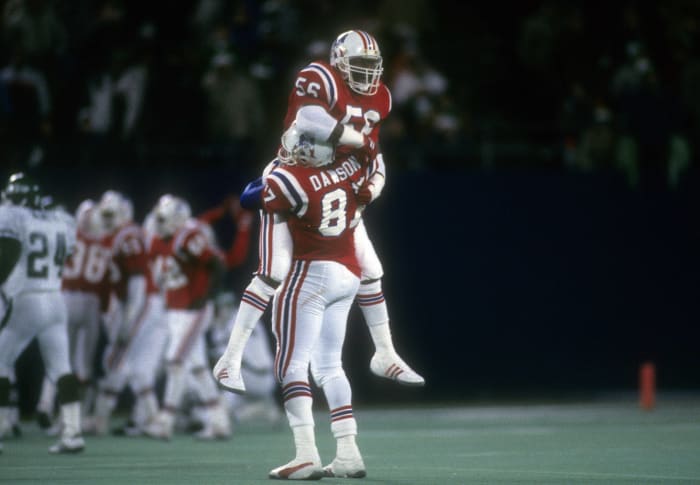
Well off the grid at plus-3000 (seventh in the AFC), these Patriots became the first road wild-card team to reach the Super Bowl. New England made a midseason coaching change in 1984, moving from Ron Meyer to Raymond Berry in a 9-7 season. The Pats deployed a top-10 offense and defense in 1985 and upended the Jets, top-seeded Raiders, and defending AFC champion Dolphins en route to Super Bowl XX. Third-year QB Tony Eason was not prepared for what came next (to be fair, few QBs in NFL history would have been), and the Bears completed their 1985 surge with a 46-10 demolition in New Orleans.
16. 2011 New York Giants
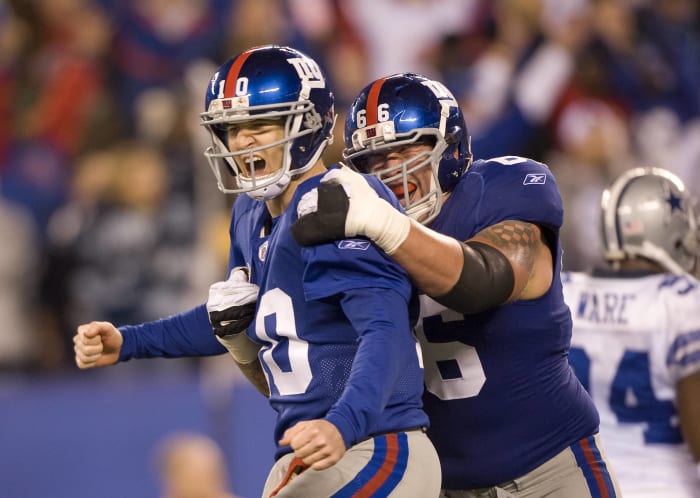
Vegas did not doubt the Giants to the degree it did most teams on this list, but they still entered 2011 with the seventh-best odds (plus-2200) in a loaded NFC. Coming off back-to-back non-playoff seasons, New York finished 9-7 in 2011. One of those losses came against the Saints -- a 49-24 runaway in the Superdome -- on a Monday night. While the Giants still had to beat two dominant NFC playoff teams -- the 15-1 Packers and a fast-rising 49ers team -- they avoided another Superdome trip. This helped Eli Manning submit his top Canton credentials, with a second upset of the Patriots -- and arguably the greatest throw in NFL history -- concluding the Giants' run to a fourth Super Bowl title.
15. 1982 Washington
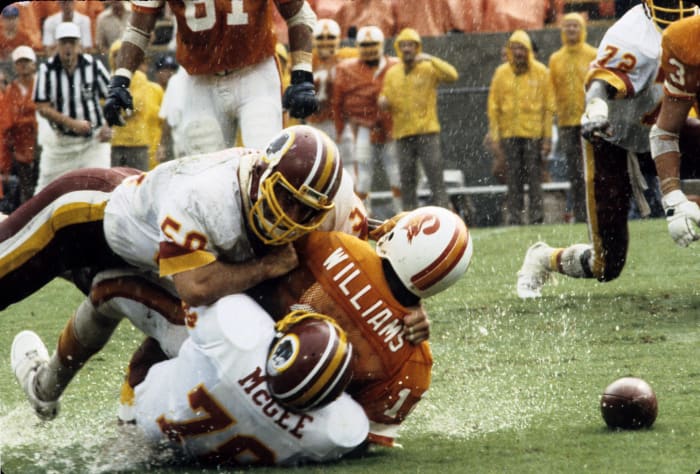
Despite Washington going from 0-5 to 8-8 in Joe Gibbs' first season, oddsmakers were not bullish on the team's 1982 prospects. Only four NFC teams carried worse Super Bowl odds going into the season, and the longest players' strike in NFL history marred the year. Rookie Charlie Brown (eight TD catches in nine games) provided instant impact, and Washington's defense ranking first in the nine-game season produced a No. 1 seed. John Riggins dominated in the four-game postseason, totaling a playoff-record 610 rushing yards to help Washington remove Dallas from the title picture and defeat Miami in Super Bowl XVII.
14. 2019 San Francisco 49ers
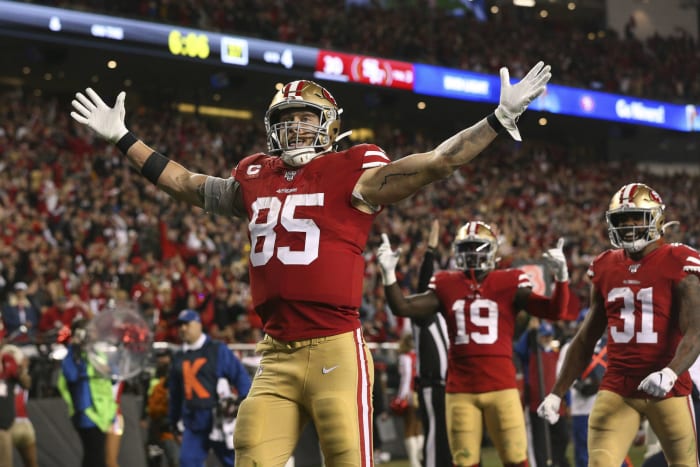
Jimmy Garoppolo's September 2018 ACL tear preceded a 4-12 showing and a second irrelevant year to start the Kyle Shanahan-John Lynch regime. The 49ers capitalized on the resulting draft real estate to key their resurgence, landing Nick Bosa second overall. The rookie defensive end transformed San Francisco's defense, and Garoppolo (feat. typical Shanahanian run-game reliability) clicked in his third 49ers season. Plus-4000 to start the season, the 49ers went 13-3 and earned the NFC's top seed for the first time in 22 years. While the 49ers had no issues getting through the NFC, the gap between Garoppolo and Patrick Mahomes showed in Super Bowl LIV, with the latter quickly erasing a two-score deficit.
13. 1988 Cincinnati Bengals

On the rise after a 10-win 1986 season, the Bengals instead tumbled to 4-11-1 in '87. Just about nothing worked for the '87 Bengals, who cratered thanks to a Boomer Esiason regression and the fielding of one of the NFL's worst defenses. This led to Sam Wyche hot-seat rumblings. The Wyche-Esiason duo became the 1988 season's top story, engineering a fast-paced offense that garnered Esiason MVP honors and the Bengals the AFC's No. 1 seed. Plus-4000 coming into the season, Cincinnati did not have much trouble with Seattle or Buffalo in the playoffs. The 49ers, however, cooled the Ickey Shuffle's momentum and beat the Bengals for the second time in a Super Bowl.
12. 2008 Arizona Cardinals

The 2007 Cardinals ditched their Matt Leinart plan, pivoting to a resurgent Kurt Warner. Arizona still went 8-8 with a plus-5 point differential. Vegas gave only four NFC teams worse odds to reach Super Bowl XLIII. In 2008, the Cards went 9-7 and entered the playoffs with a plus-1 differential. Arizona's 28th-ranked defense restrained the Warner-Larry Fitzgerald-Anquan Boldin attack, but teams had no answer for Fitz catching fire in January. Warner and the franchise-icon wideout dragged DVOA's 20th-ranked team to the Super Bowl. By season's end, the duo connected on a playoff-record seven TDs. The Cards defense could not stop Santonio Holmes when it counted, however.
11. 1981 San Francisco 49ers

Joe Montana's rookie season doubled as a 2-14 slate -- the 49ers' second straight two-win season. In 1980, they improved but only to 6-10. San Francisco was still plus-5000 -- ahead of just five NFC teams -- going into the '81 season. By season's end, Montana was a legend and Bill Walsh's West Coast Offense was changing football. The 49ers drafted Ronnie Lott in Round 1 and traded for ace edge rusher Fred Dean; they finished with the NFL's No. 2 defense. That unit helped compensate for the 49ers offense's six-turnover NFC title game, and Dwight Clark's top contribution might be the NFL's most-replayed sequence. Walsh exacted revenge on his former employer in Super Bowl XVI -- a 26-21 49ers win over the Bengals.
10. 2015 Carolina Panthers

This space slots the 2014 Panthers as the worst non-strike-year playoff team ever. Carolina went two months without winning a game, in a 7-8-1 season that involved a playoff win over a third-string Arizona QB. Losing No. 1 wideout Kelvin Benjamin in training camp, the 2015 Panthers were plus-6000 (12th in the NFC) to win it all. But Cam Newton briefly turned into the future of the NFL. The dual-threat passer had by far the best season of his career, skating to MVP honors, and the Panthers crushed the Cardinals to enter Super Bowl 50 17-1. Favored to win, Carolina had no answer for Denver's generational defense on a night from which Newton never recovered.
9. 2000 New York Giants
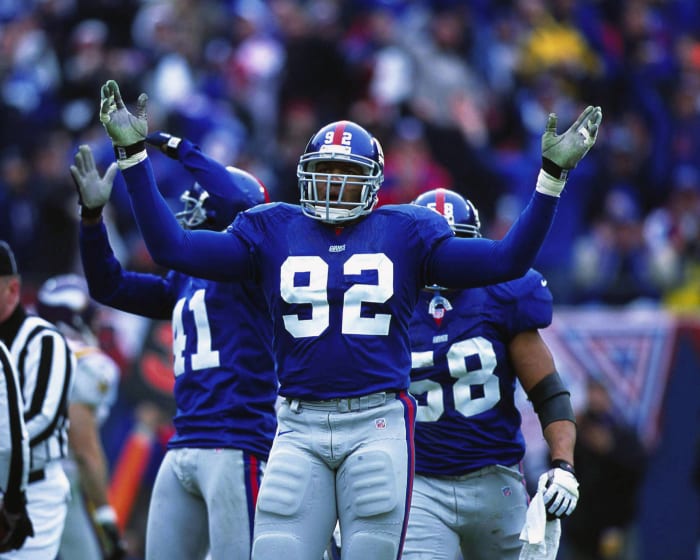
A surprise playoff qualifier in 1997, the Giants had largely been an off-grid team following the 1994 exits of Lawrence Taylor and Phil Simms. Only four NFCers entered the 2000 season with worse Super Bowl odds than the Giants (plus-6000). New York finished 7-9 in 1999, but in Kerry Collins' second Giants season, Jim Fassel's squad earned home-field advantage at 12-4. The coach's poker-game speech remains an iconic press-conference moment, and the Giants rode Collins, their thunder-and-lightning backfield (Tiki Barber, Ron Dayne), and John Fox's improved defense. This combo bludgeoned the Vikings, 41-0, to reach Super Bowl XXXV but was no match for a Ravens defense operating on a rarely seen level.
8. 1998 Atlanta Falcons
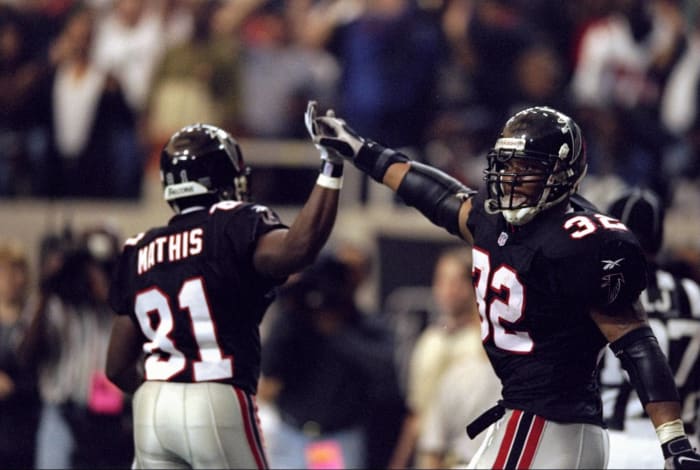
Although a trade for Chris Chandler allowed the Falcons to close the book on Jeff George, their 1997 team started 0-5. Jamal Anderson averaged 3.5 yards per carry, and Atlanta went 7-9 in Dan Reeves' debut season. The Falcons were plus-6000 to reach Super Bowl XXXIII. Dramatic improvements on offense and defense changed the equation. Atlanta boasted top-five units on both sides, and Anderson shined in an All-Pro year. Chandler had two 1,100-yard wideouts (Terance Mathis and Tony Martin) and led the Falcons to a 14-2 season. This offense won an NFC title shootout to stun the 15-1 Vikings but ran out of gas against the Broncos two weeks later.
7. 2001 New England Patriots

Despite Drew Bledsoe having taken the Patriots to a Super Bowl and quarterbacked them to four playoff fields, momentum stalled in 2000. The Pats went 5-11 in Bill Belichick's first season, and Vegas placed them in front of only the sad-sack Ohio teams for AFC Super Bowl likelihood. Bledsoe's scary injury summoned Tom Brady. Perhaps more importantly, Belichick's defense was ready by 2001. Armed with holdovers from Bill Parcells' Super Bowl XXXI team, the Pats ranked sixth defensively in an 11-5 season. "The Tuck Rule" game happened, but Belichick's defense bullied the Rams (14-point favorites) in Super Bowl XXXVI to help Brady win his first title. This became a trend.
6. 1981 Cincinnati Bengals

Paul Brown promoted the wrong coach in 1976, after he stepped down from the post, which led to a Bengals downturn and eventually changed the 49ers' outlook. Beyond the Bill Johnson-over-Bill Walsh choice, Ken Anderson had regressed from his high-efficiency form under Walsh. The Bengals drafted Jack Thompson third overall in 1979 and went 6-10 in 1980. Anderson proved skeptics wrong in '81, reviving a Bengals team given plus-6000 Super Bowl odds. The 32-year-old QB won MVP honors, outplayed Dan Fouts in San Diego and frigid Cincinnati, and led the Bengals to their first Super Bowl. Walsh and his new Anderson, Joe Montana, got the best of Cincinnati. It would not be the last time.
5. 2016 Atlanta Falcons

The Falcons went from 5-0 to 8-8 in 2015, squandering a dominant Julio Jones year. Oddsmakers paid little attention to the 2016 Falcons, slotting them at plus-8000 (13th in the NFC). Kyle Shanahan's offense exploded. This attack's 33.8 points per game still ranks eighth in the Super Bowl era; Matt Ryan glided to MVP honors. The Falcons mowed down the Seahawks and Packers to set up a potential coronation. Despite No. 1 cornerback Desmond Trufant's absence, Atlanta held New England to three points through nearly three quarters. Infamously, this did not hold up. The Falcons' 27th-ranked defense caved in easily the worst loss in NFL history, and the offense was never the same post-Shanahan.
4. 1994 San Diego Chargers

Playing in a division that suddenly housed Elway and Montana, and a third playoff team in the Raiders, the 1993 Chargers went 8-8. Little was expected from San Diego (plus-7500) in 1994, the first salary-capped year. But the Bills finally taking a step back opened up the AFC. The Bolts became the unlikely beneficiaries, starting 6-0. While the Junior Seau-led team faded a bit, going 11-5, it entered the playoffs with a top-10 offense and defense. A Pete Stoyanovich missed field goal allowed the Bolts to escape the Dolphins, and San Diego's defense denied a late Pittsburgh charge a week later. The NFC still lapped the AFC at this point, and the 49ers displayed the gap in a 49-26 Super Bowl XXIX win.
3. 2003 Carolina Panthers

George Seifert went 1-15 in his final Panthers season (2001), but John Fox's debut showed promise at 7-9. This came with 36-year-old journeyman Rodney Peete at the controls. In 2003, Carolina signed ex-New Orleans backup Jake Delhomme on a mid-level deal. Still, Vegas gave only the Texans, a second-year franchise, worse Super Bowl odds than the Panthers (plus-10000). But Delhomme helped Carolina go from 30th to 15th on offense in an 11-5 season. This rise also coincided with Steve Smith's breakthrough, and the third-year talent delivered an overtime walk-off to upset the Rams in Round 2. After Fox's defense muzzled the Eagles, Delhomme and Tom Brady waged a Super Bowl XXXVIII shootout -- one that went the Patriots' way.
2. 2021 Cincinnati Bengals
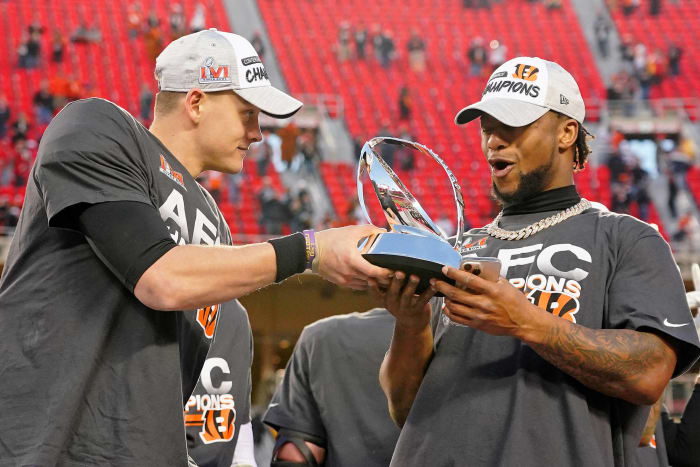
Vegas gave the Bengals worse odds than all but two teams, at plus-15000, slotting them behind Urban Meyer's Jaguars. The September doubt made sense. The Bengals could not protect Joe Burrow last season, leading to his ACL tear, and Lou Anarumo's first two defenses ranked near the bottom of the league. The Bengals went 6-25-1 in Zac Taylor's first two seasons. Burrow's ascendance and Ja'Marr Chase's rapid rise led to one of the NFL's greatest turnarounds. Burrow still paced the NFL in sacks taken, but he led Cincinnati to 13 wins -- topping out with two double-digit comebacks over the Chiefs -- and Cincy's defense largely delivered. While the Bengals fell short against the Rams, this was one of the most surprising seasons in NFL history.
1. 1999 St. Louis Rams
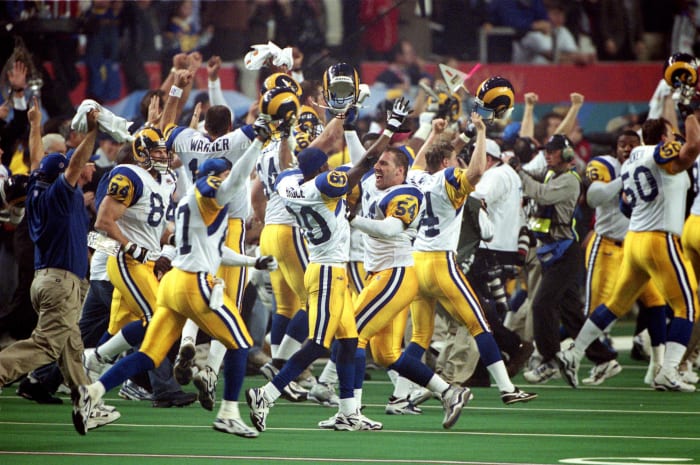
Dıck Vermeil's return to coaching in 1997 produced a 9-23 record in his first two St. Louis seasons. Not only did the old-school coach lighten up, but the Rams also remade their offense around some of the best skill players in NFL history. A trade for Marshall Faulk and first-round pick of Torry Holt gave new QB Trent Green tantalizing weaponry, but Green's preseason injury led to Vegas deeming the Rams a non-threat (plus-15000). Kurt Warner stepping in to turn what had been a lousy offense into "The Greatest Show on Turf" and winning MVP honors absolutely deserved a movie. His Isaac Bruce connection to sink the Titans in Super Bowl XXXIV not only provided a remarkable end to one of the great redemption chapters in NFL history, it gave the Rams their first title in 48 years.
Sam Robinson is a Kansas City, Mo.-based writer who mostly writes about the NFL. He has covered sports for nearly 10 years. Boxing, the Royals and Pandora stations featuring female rock protagonists are some of his go-tos. Occasionally interesting tweets @SRobinson25.
More must-reads:
- Joe Burrow: 'Strong start' could slow Rams pass rush in Super Bowl
- Bengals' Zac Taylor 'optimistic' C.J. Uzomah will play in Super Bowl
- The '100 catches in an NFL season' quiz
Breaking News
Customize Your Newsletter
 +
+
Get the latest news and rumors, customized to your favorite sports and teams. Emailed daily. Always free!
Use of this website (including any and all parts and
components) constitutes your acceptance of these
Terms of Service and Privacy Policy.

